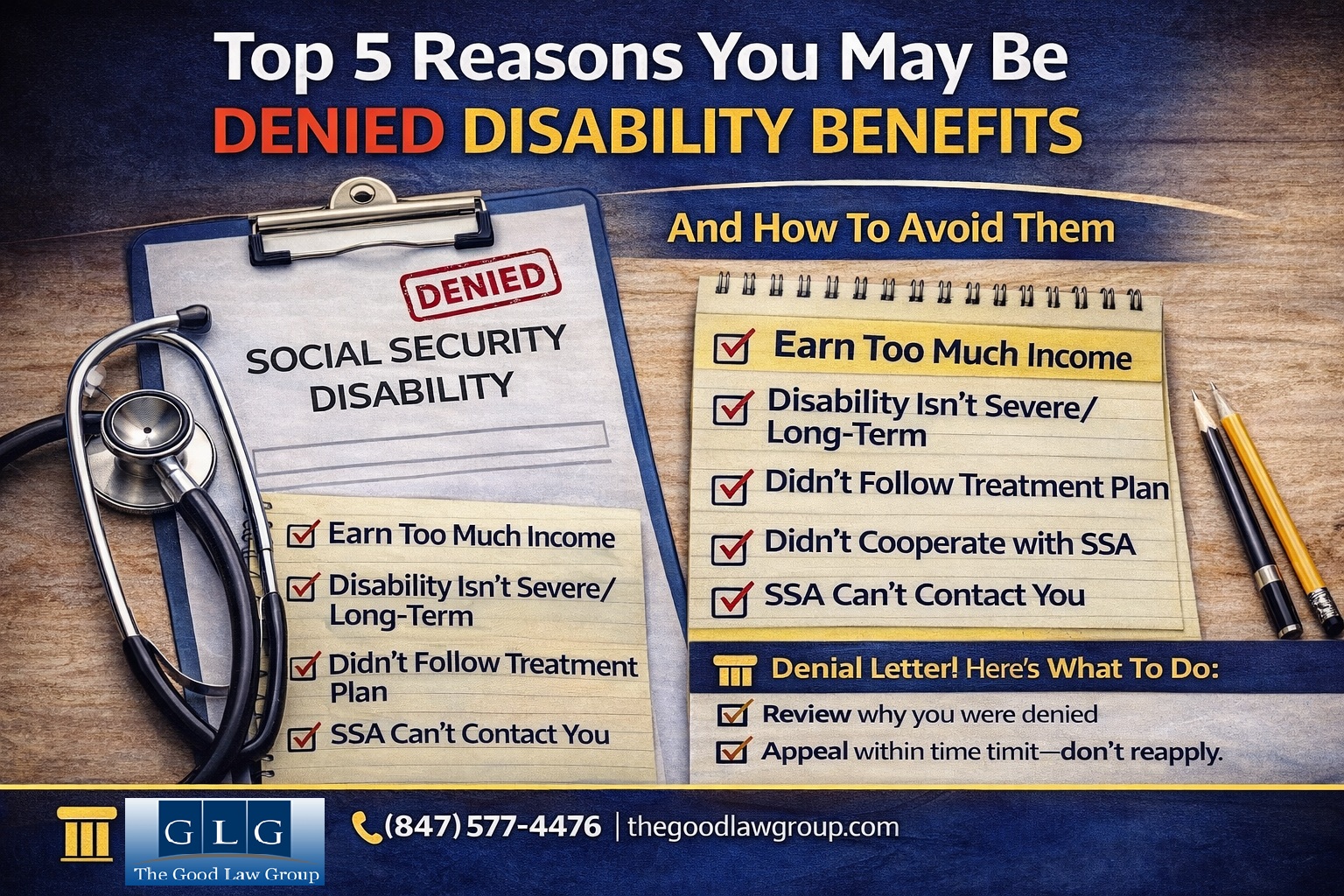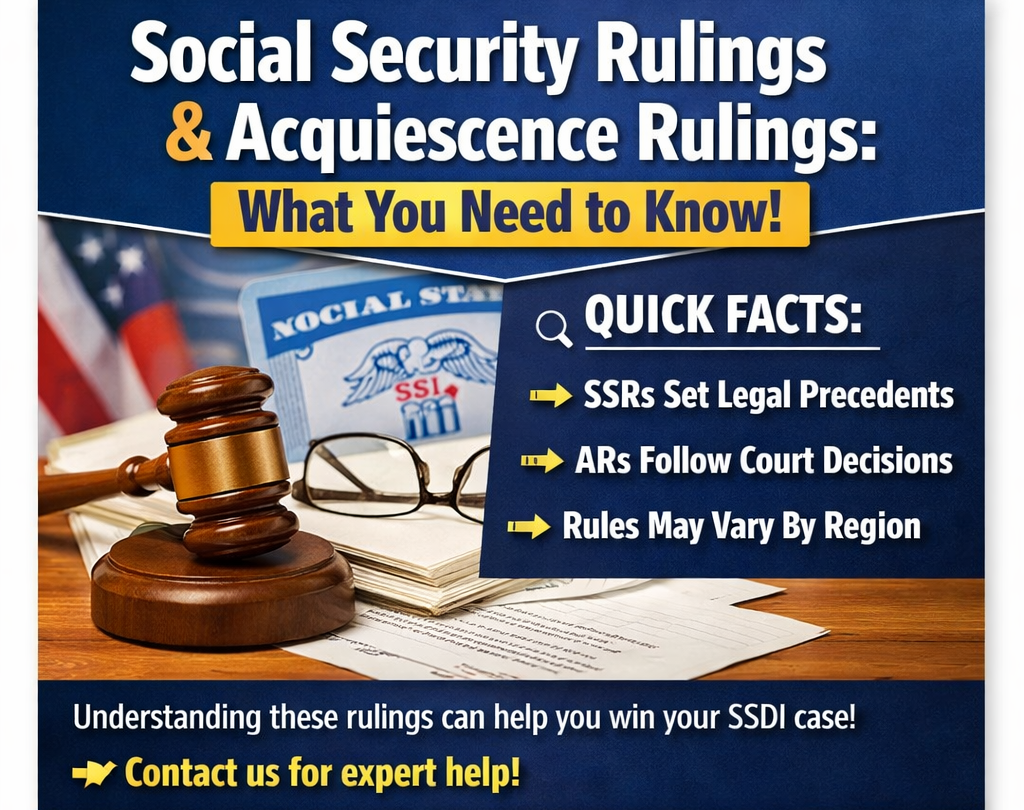The first question people ask when they apply for disability is whether they will be approved for benefits. Unfortunately, the odds that your disability application will be approved at the initial stage of the process are not good.
According to the Social Security Administration (SSA), the disability approval rating at the initial application stage is roughly 36%. That means 6 out of every 10 applications for disability benefits will be denied. Approval ratings do, however, increase for cases that are appealed. More than 50% of individuals who appeal an initial denial to an administrative hearing, for example, have their applications approved.
Although no attorney can guarantee that the SSA will approve your application for social security disability benefits, some factors push the odds of approval in your favor. To learn more, watch this short video.

The Social Security Administration recognizes your condition as disabling
Eligibility for social security disability benefits requires either that the disability lasts, or is expected to last, 12 months or longer, or will result in your death. This means that disability benefits are paid only for long-term disability; short-term disability does not qualify.
The Social Security Administration Blue Book lists more than 100 medical conditions the SSA considers disabling. Each condition has specific criteria applicants must meet, through medical evidence, to prove their disability. Being able to meet these criteria doesn’t guarantee that the SSA will rule that you are disabled enough to receive disability benefits. Some people can meet a listing’s criteria from a medical standpoint yet, either through workplace accommodations, treatment, or an ability to adapt to or work through any pain, still be able to work. But meeting the criteria for a specific listing increases your chances of approval.
You earn less than substantial gainful activity
By itself, having a recognized disability isn’t enough to qualify an applicant for social security disability benefits. You must also be able to demonstrate that the disability interferes with your ability to work. More specifically, the disability must make you unable to participate in what the SSA calls substantial gainful activity (SGA). For 2020, that means being able to earn more than $1,260 per month, or $2,110 if you are blind (the SSA adjusts the SGA amount annually).
Just like having a disability that is included in the SSA Blue Book isn’t an automatic guarantee of eligibility for disability benefits, having monthly earnings that fall below the SGA threshold doesn’t guarantee that your application will be approved. Neither does having earnings that exceed that threshold serve as an automatic disqualification.
If your monthly earnings exceed SGA, but you were provided special accommodations, worked irregular hours, or required frequent breaks to work, the SSA may still rule that you are eligible for disability benefits. Certain payments considered income for income tax purposes, such as alimony payments, are not counted as income for purposes of determining monthly income for SSD purposes.
Likewise, you can be ineligible for benefits even if you earn less than SGA. For example, if the SSA finds that you could perform other work, or could continue in your current job with accommodations. But earning less than the SGA when you apply for disability is a good indicator that your application will be approved.
You have sufficient work credits
Social security disability is like an insurance program. Individuals pay into Social Security by working certain covered jobs, and their earnings are converted into work credits. In 2020, $1,410 in earnings is equivalent to one credit (like SGA, the amount changes annually). You can earn a maximum of four credits per year.
Typically, you need 40 work credits to be eligible for social security disability benefits, 20 of which must have been earned in the 10-year period ending at the start of your disability. So, if you apply for disability in 2020 but became disabled in 2018, you must have earned 20 work credits in the period 2008 to 2018.
Younger disabled workers, however, may qualify with fewer work credits. The amount required depends on age and is as follows:
- Younger than 24: Six credits in the three-year period ending when your disability began
- 24 to 31 years old: You need work credits equal to half the time you worked between age 21 and the date you become disabled. For example, if you were disabled at age 29, you need four years of work history and 16 credits.
- 31 to 42 years old: You need a minimum of 20 work credits,
- Older than 42: The number of work credits needed is based on a sliding scale and adds two credits every two years to the 20 credit requirement. For example, a 50-year old applicant would need 28 credits.
You cannot do any prior work
Eligibility for social security disability benefits does not just require a finding that you are unable to perform at your current job; the SSA must also find that you cannot work at any of your prior jobs. After determining that your disability precludes you from working at the job you held when you became disabled, the SSA will consider your age, education, experience, and prior work history to determine if there is other work you could perform. If the answer is yes, your application will be denied.
For example, let’s say you work in construction and your disability prevents you from operating heavy machinery and lifting heavy objects. However, your work history shows that you held various jobs in administrative or managerial roles, none of which required you to operate machinery or lift heavy objects. The SSA would therefore consider you able to do your prior work and deny your application.
If, however, your disability prevents you from performing even these tasks – for example, if you cannot sit for long periods or if you cannot perform administrative tasks like typing or filing – the SSA would find that you were unable to perform any of your prior work, and your application would likely be approved.
Obtaining disability benefits can be complicated, but an experienced SSD lawyer can help you when applying. Consider the Good Law Group for your representation – call (847) 577-4476.









